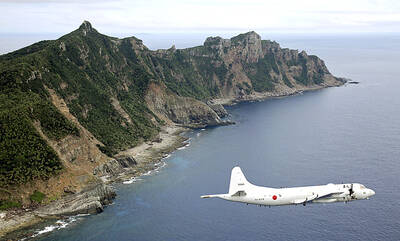More than 2.1 million drop-side cribs by Stork Craft Manufacturing are being recalled, the biggest crib recall in US history, following reports of four infant suffocations.
The Consumer Product Safety Commission (CPSC) said late on Monday the recall involves 1.2 million cribs in the US and almost 1 million in Canada, where Stork Craft is based. Sales of the cribs being recalled go back to 1993.
Nearly 150,000 of the cribs carry the Fisher-Price logo.
The CPSC said it is aware of four infants who suffocated in the drop-side cribs, which have a side that moves up and down to allow parents to lift children from the cribs more easily. The agency also said there have been 110 incidents of drop-sides detaching from the cribs.
The Stork Craft cribs have had problems with their hardware, which can break, deform or become missing after years. CPSC said there could also be problems with assembly mistakes by the crib owner.
These problems can cause the drop-side to detach, creating a dangerous space between the drop-side and the crib mattress, where a child can become trapped.
The commission is urging parents to stop using the cribs until receiving a free repair kit from Stork Craft. The kit will convert the drop-side into a fixed side.
The cribs, which were manufactured and distributed between January 1993 and October, were sold at major retailers including BJ’s Wholesale Club, Sears and Wal-Mart stores and online through Target and Costco. They sold for between US$100 and US$400, and were made in Canada, China and Indonesia.
Calls to Stork Craft were not immediately returned.
This is the second big recall this year for the company. It recalled about 500,000 cribs in January because of problems with the metal brackets that support the mattress. Some of the same models in the earlier recall were also part of Monday’s announcement, CPSC said.
Consumer advocates have complained for years about drop-side cribs. More than 5 million of them have been recalled over the past two years alone — recalls that were associated with the deaths of a dozen young children.
ASTM International, an organization that sets voluntary industry safety standards for everything from toys to the steel used in commercial buildings, approved a new standard last week that requires four immovable, or fixed, sides for full-size cribs — essentially eliminating the manufacture of drop-side cribs.
CPSC is also considering new rules for making cribs safer and could adopt the ASTM voluntary standard as a mandatory one, outright banning the cribs.
Nancy Cowles, executive director of Chicago-based Kids In Danger, said the agency must include more rigorous testing for crib durability.
“Parents should be able to trust that their child is safe in their crib,” Cowles said.
Toys”R”Us started phasing out drop-side cribs this year and will not carry them from next month.

MISINFORMATION: The generated content tends to adopt China’s official stance, such as ‘Taiwan is currently governed by the Chinese central government,’ the NSB said Five China-developed artificial intelligence (AI) language models exhibit cybersecurity risks and content biases, an inspection conducted by the National Security Bureau (NSB) showed. The five AI tools are: DeepSeek, Doubao (豆包), Yiyan (文心一言), Tongyi (通義千問) and Yuanbao (騰訊元寶), the bureau said, advising people to remain vigilant to protect personal data privacy and corporate business secrets. The NSB said it, in accordance with the National Intelligence Services Act (國家情報工作法), has reviewed international cybersecurity reports and intelligence, and coordinated with the Ministry of Justice Investigation Bureau and the National Police Agency’s Criminal Investigation Bureau to conduct an inspection of China-made AI language

BOOST IN CONFIDENCE: The sale sends a clear message of support for Taiwan and dispels rumors that US President Donald Trump ‘sold out’ the nation, an expert said The US government on Thursday announced a possible sale to Taiwan of fighter jet parts, which was estimated to cost about US$330 million, in a move that an expert said “sends a clear message of support for Taiwan” amid fears that Washington might be wavering in its attitude toward Taipei. It was the first announcement of an arms sale to Taiwan since US President Donald Trump returned to the White House earlier this year. The proposed package includes non-standard components, spare and repair parts, consumables and accessories, as well repair and return support for the F-16, C-130 and Indigenous Defense Fighter aircraft,

CHECKING BOUNDARIES: China wants to disrupt solidarity among democracies and test their red lines, but it is instead pushing nations to become more united, an expert said The US Department of State on Friday expressed deep concern over a Chinese public security agency’s investigation into Legislator Puma Shen (沈伯洋) for “secession.” “China’s actions threaten free speech and erode norms that have underpinned the cross-strait ‘status quo’ for decades,” a US Department of State spokesperson said. The Chongqing Municipal Public Security Bureau late last month listed Shen as “wanted” and launched an investigation into alleged “secession-related” criminal activities, including his founding of the Kuma Academy, a civil defense organization that prepares people for an invasion by China. The spokesperson said that the US was “deeply concerned” about the bureau investigating Shen

DISPUTE: A Chinese official prompted a formal protest from Tokyo by saying that ‘the dirty head that sticks itself out must be cut off,’ after Takaichi’s Taiwan remarks Four armed China Coast Guard vessels yesterday morning sailed through disputed waters controlled by Japan, amid a diplomatic spat following Japanese Prime Minister Sanae Takaichi’s comments on Taiwan. The four ships sailed around the Senkaku Islands — known as the Diaoyutai Islands (釣魚台) to Taiwan, and which Taiwan and China also claim — on Saturday before entering Japanese waters yesterday and left, the Japan Coast Guard said. The China Coast Guard said in a statement that it carried out a “rights enforcement patrol” through the waters and that it was a lawful operation. As of the end of last month,